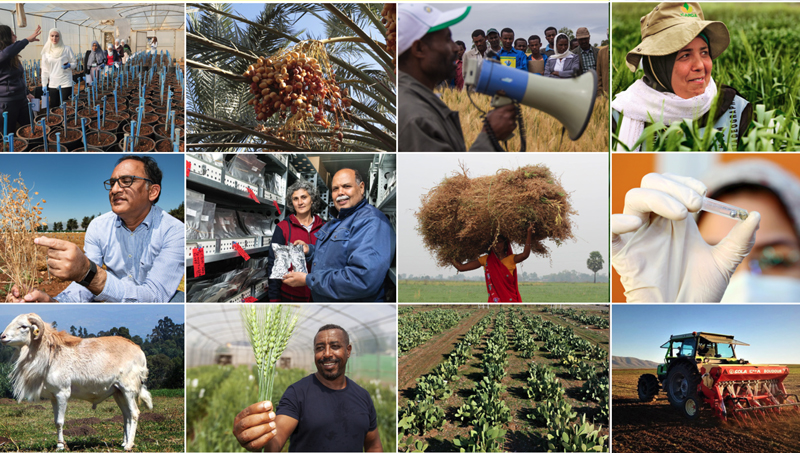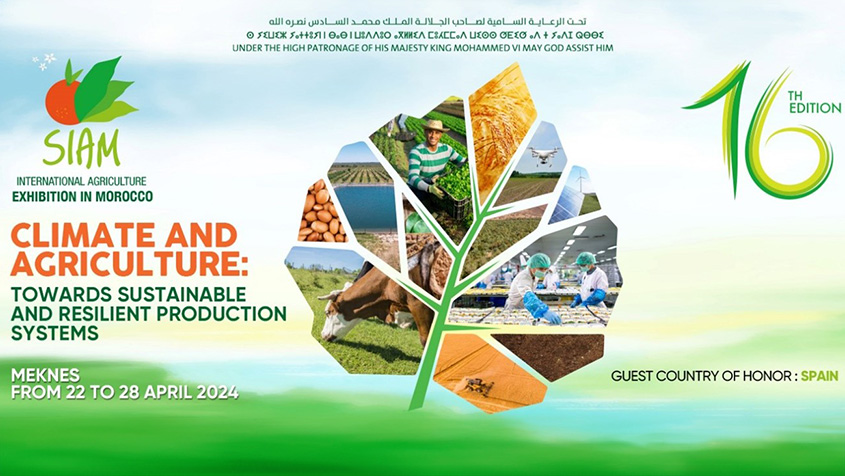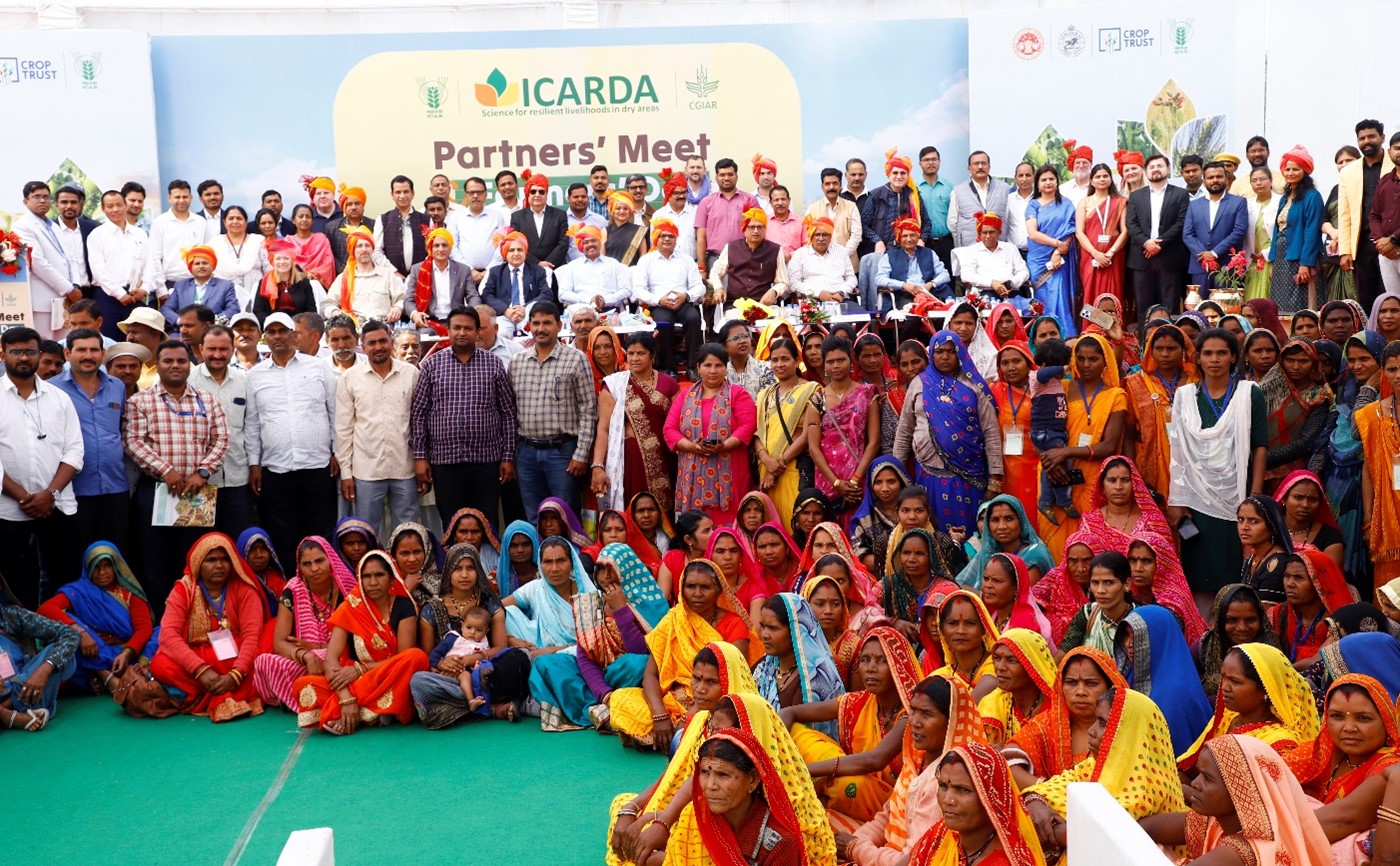ICARDA and the Kingdom of Morocco – Celebrating a Decade of The Rainfed Research Platform
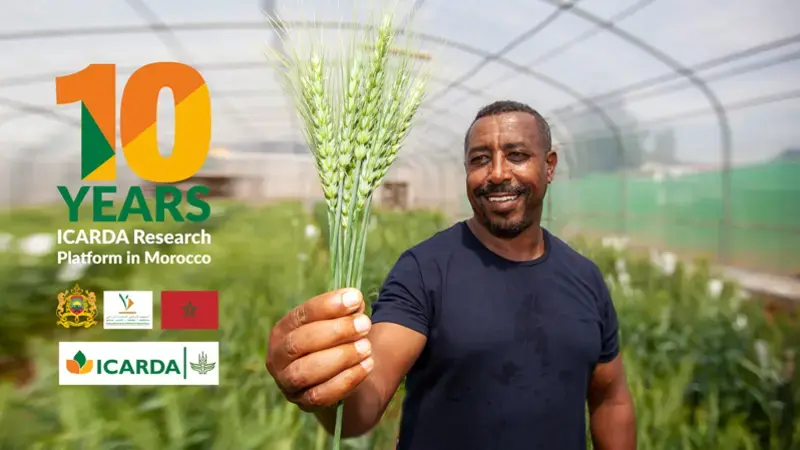
For the last decade, ICARDA, under CGIAR, has collaborated with the Kingdom of Morocco on a groundbreaking Rainfed Research Platform to promote sustainable and resilient livelihoods for rural communities while conserving precious natural resources.
Morocco's agricultural sector, which covers nine million hectares of agricultural arable land, faces severe climate threats such as last year’s ‘drought of the century’ that risk devastation of crops and acute food insecurity for rural communities. Since 1985, the Kingdom of Morocco has generously supported ICARDA in developing climate-resilient food systems to address these challenges. Then in 2013, to laser-focus efforts, the ICARDA Research Platform on Rainfed Agriculture was established with the Institut National de la Recherche Agronomique du Maroc (INRA) to generate targeted resilient agricultural technologies for the country. Integrated with CGIAR F2R-CWANA Initiative, research outcomes will help make agri-resilience a reality for global drylands and regional, sub-Saharan, and European countries facing similar climate challenges.
Ten years later, the platform has cemented a reputation as a globally renowned research hub leading cutting-edge research focused on the conservation and sustainable use of dryland agrobiodiversity, including microbial and farming with indigenous pollinators, cereals, and food legumes improvement, agronomy and integrated water/land management, integrated diseases and pest management, sustainable intensification and diversification of farming systems and socio-economic, gender, youth, and impact assessment studies.
Growing together
Since its launch, more than USD 200 million has been invested in the rainfed research platform. ICARDA now manages up to 30% of its annual global budget (approximately USD 10 million) in Morocco, distributed across 72+ projects led by 21 international scientists and over 60 national staff.
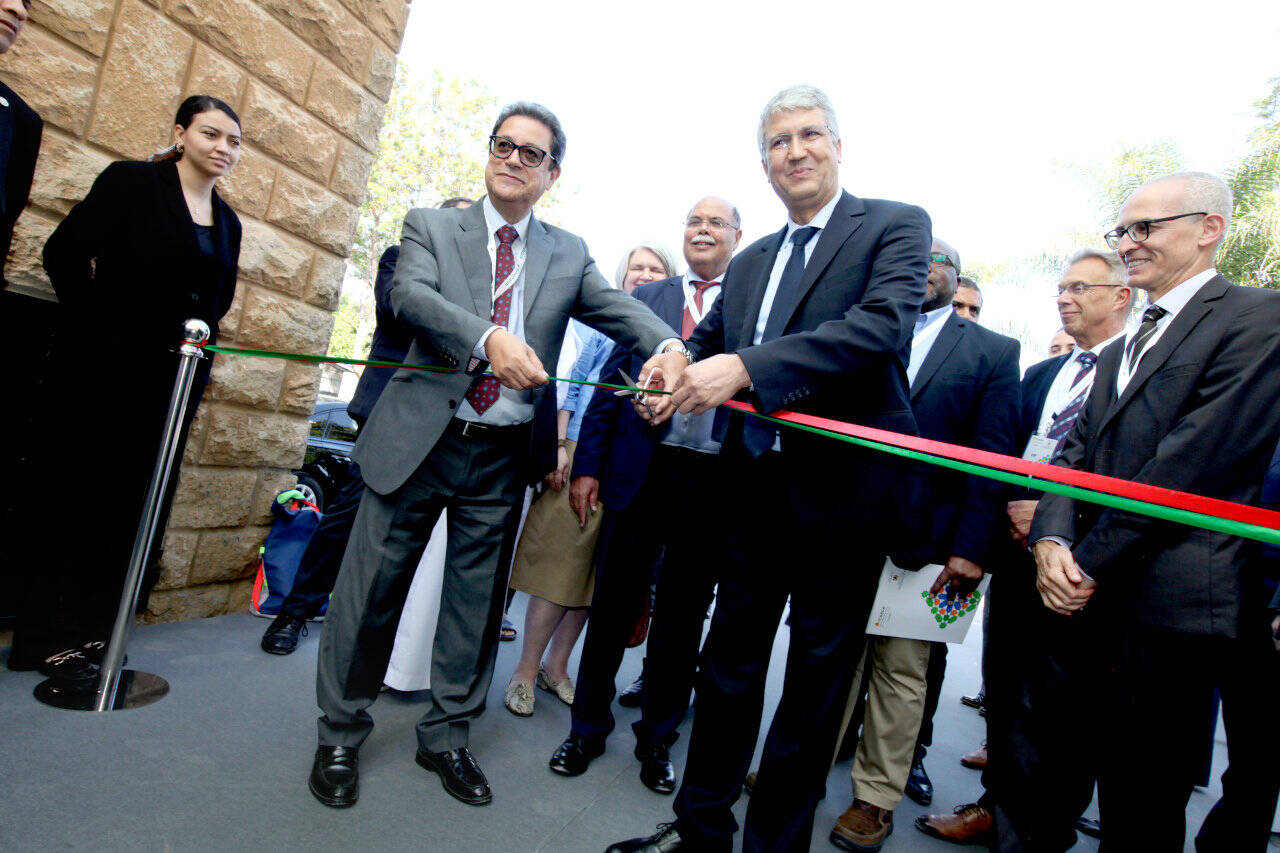
The platform encompasses six futuristic laboratories, a state-of-the-art GeneBank, a precision heat and drought tolerance platform with a lysimeter (measuring soil/water content and use), 150 hectares of directly managed field crop research within the INRA Marchouch research station, and access to an additional ten stations around Morocco, including a shuttle breeding summer site in the Atlas Mountains. In 2022, the ICARDA Morocco genebank was inaugurated in Rabat by His Excellency Dr. Mohamed Sadiki, Morocco’s Minister of Agriculture. It hosts 110,000 accessions (of a total capacity of 150,000) of stored wheat, barley, lentil, chickpea, and rangeland and forage species and significantly enriches global plant genetic diversity alongside a similar facility in Lebanon. Combined, the ICARDA genebanks contribute a unique dryland component to CGIAR’s comprehensive genebank network.
Morocco’s pioneering and inclusive climate-smart programs lead the way.
The Kingdom of Morocco is a global leader in food systems transformation for climate resilience through its "Generation Green 2020-2030" plan to strengthen the agriculture sector as a potent economic driver and source of employment for rural communities. The strategy guides ICARDA's important partner-led mission to develop and deploy scientific solutions for rural populations to reduce poverty, raise sustainability, create employment, and ensure equitable livelihoods.
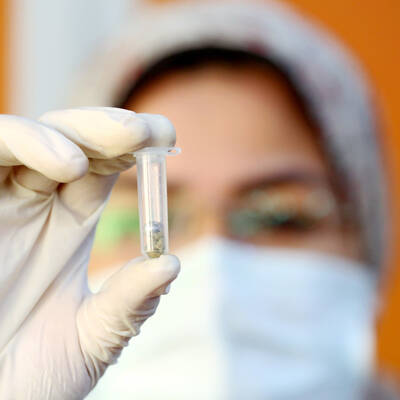
ICARDA also develops new value chains for healthier foods and supports significant development of green technologies. In 2020, ICARDA joined forces with INRA to adopt the country’s trailblazing new 1 million hectares of Conservation Agriculture program to increase national cereal yields by 50%.
Rural youth in the country is a key driver for the uptake of new agricultural technologies, so ensuring concrete outcomes through their engagement and training is a clear priority for the research platform. The platform is a major hub for international agri-innovation conferences and workshops and a training center for tomorrow’s Moroccan agricultural experts. ICARDA's innovations, especially those related to digital tools, help develop youth employment in village enterprises while integrating women cooperatives' roles as rural income generators.
ICARDA and Morocco's partnership in climate-resilient agriculture research is vital for the country, the region, and the world facing similar challenges. By developing and deploying scientific solutions that prioritize rural populations' needs through the Rainfed Research Platform, ICARDA and Morocco are pioneering climate-smart agriculture programs that lead the way in transforming food systems for climate resilience.
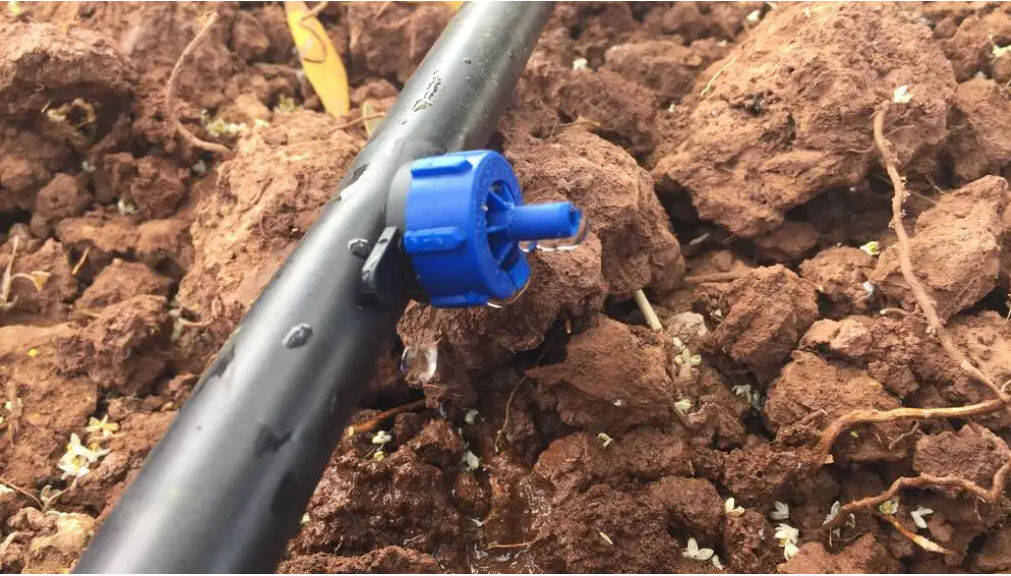
Ten years of lab to land – Rainfed Research Platform Fact-file
In just ten years, the ICARDA research platform in Rabat has become a globally renown research center that has delivered vital research toward climate-smart food systems transformation.
-
Even with just 200 mm of total rainfall during the ‘drought of the century’ in 2022, the research station delivered similar crop yields to a regular season, thanks to combined packages of climate-smart innovations.
-
Groundbreaking water-efficient technologies demonstrated in farmers’ fields reduced irrigation water use by up to 30% while simultaneously increasing water productivity by 30%
-
Sixty-six varieties of crops have been released in Morocco, including six new drought-tolerant barley and durum wheat.
-
ICARDA’s ultra-low energy drippers have demonstrated 70% energy savings through integrated solar-panel irrigation methods.
-
The work on Farming with Alternative Pollinators (FAP) has identified more than 20 previously unknown pollinator species, and Morocco has joined the Coalition of The Willing on Pollinators.
-
An integrated package developed by the partnership helps to control cochineal in cacti, including biopesticides and natural enemies, and identify resistant ecotypes.
-
A Young Agricultural Scientist Program and related training projects have ensured the completion of MSc and Ph.D. studies for over 154 students and young scientists since 2013.
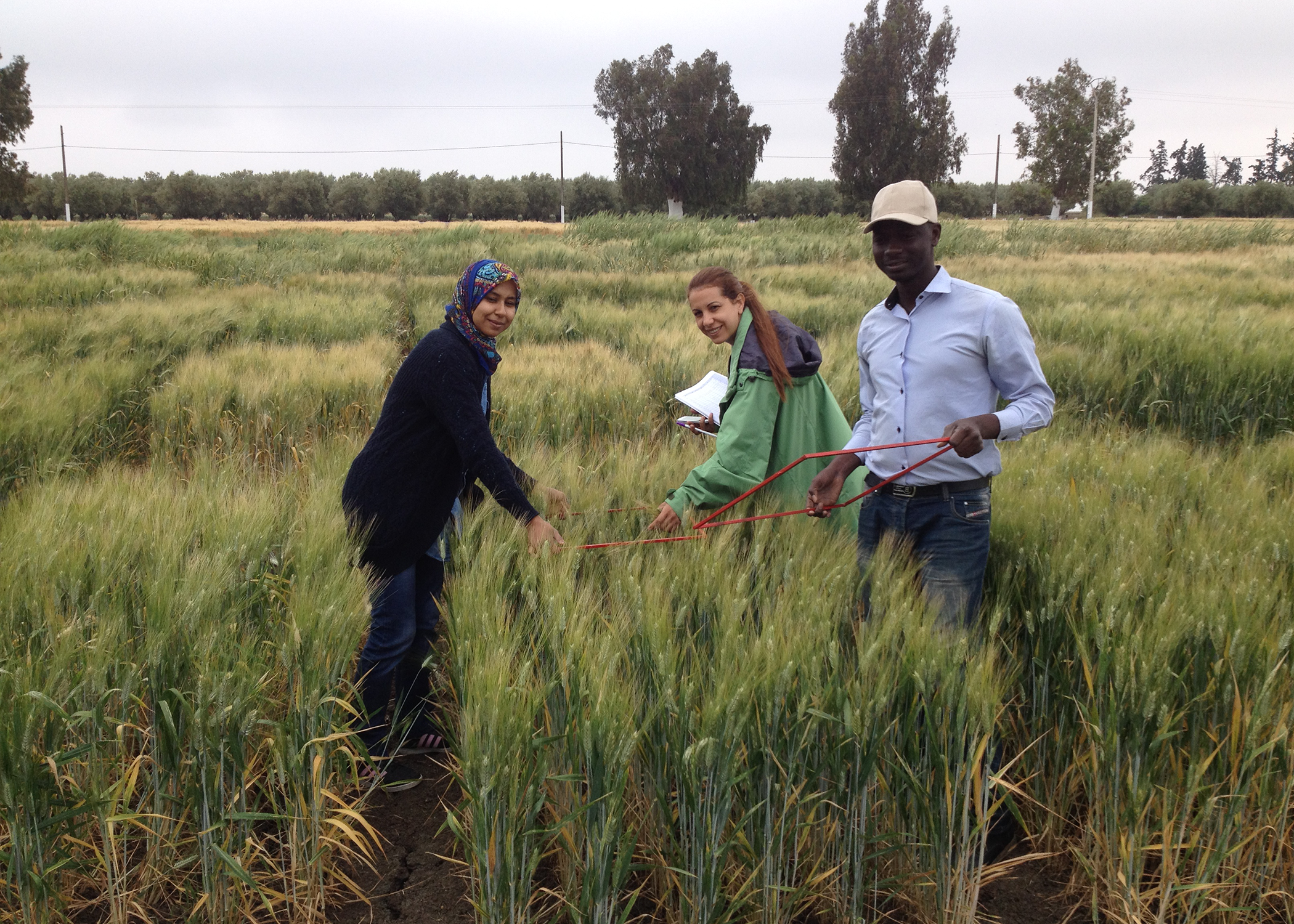
-
The platform contributes to a fast response to the major pests and disease threats, including yellow rust and Hessian fly for cereals and cochineal for cacti, by identifying novel resistance sources and developing integrated management packages.
-
The INRA-ICARDA-CIMMYT drought and heat tolerance precision phenotyping site is located at Sidi El Aydi experimental station.
-
Use of GIS/RS tools in agriculture, including the latest phone applications, more robust remote guidance, and virtual extension to farmers.
-
Morocco is also a central hub for two CGIAR Global initiatives: F2R-CWANA and Excellence in Agronomy.
-
Several transfer of technologies projects are implemented. Participatory approaches using innovation platforms, gender-sensitive and value chain based-research, use of big data and remote sensing technologies to facilitate the transfer of technologies to farmers by adopting new models “from farm to fork” and “from lab to farm”.
---------------------------------------------

